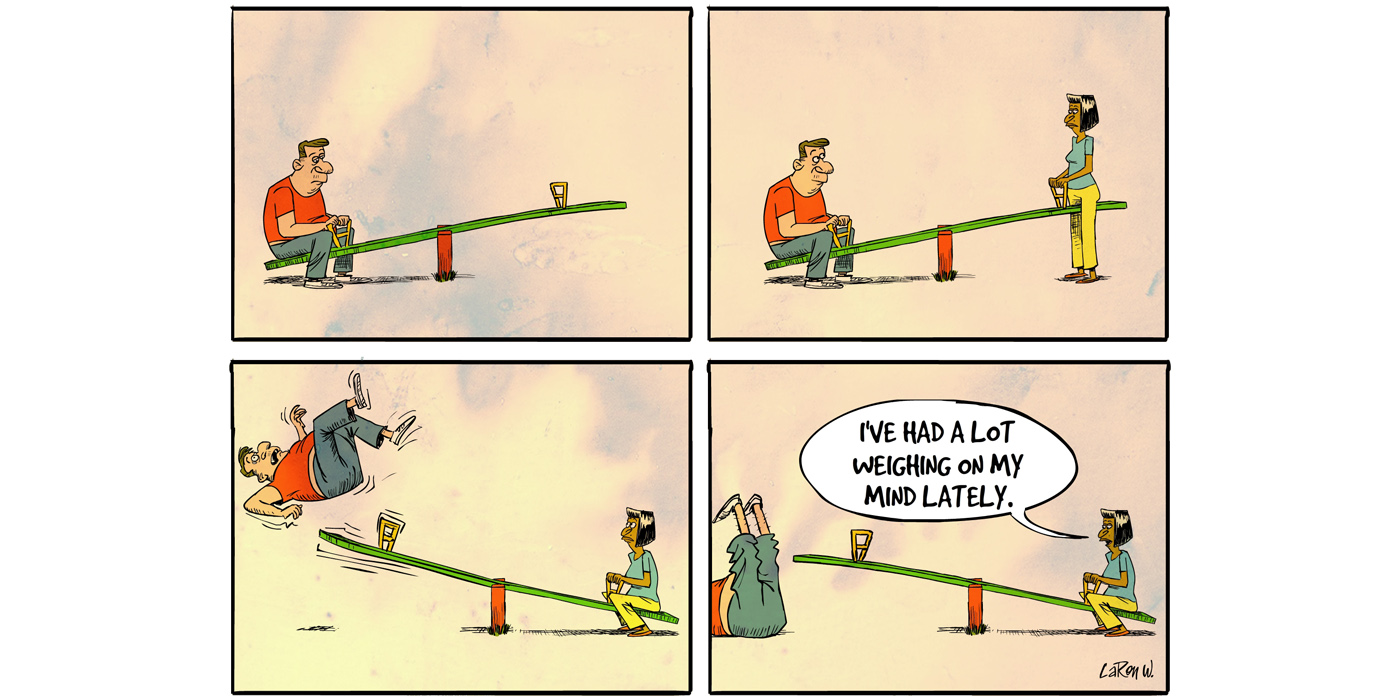
As a young girl, I dreamed of becoming a scientist. But life took a sharp turn when instead I became a lust addict. Accepting my struggle wasn’t easy. What I thought was innocent indulgence in pornography and fantasy spun out of control, and I came to feel completely powerless. I stumbled across SA on the Internet, but I was still under age, and I had to wait until I turned 18 to join the Program. And living in India, where we didn’t yet have face-to-face meetings, meant I had to rely solely on online support.
At my first virtual meeting, I encountered lots of men! But the true battle wasn’t with the men present—it was the grip of my addiction, which reduced people to mere objects of desire in my mind. Despite my best efforts, I found myself lusting after men much older than me, and it was very difficult to control my thoughts. From moments of prayerful reflection to the simple mantra, “keep coming back,” each Program tool became a lifeline in my fight to escape the predatory instincts of my addiction. “You’re a predator,” my sponsor’s words kept echoing in my mind as a stark reminder of the seriousness of my struggle. Accepting this truth wasn’t easy, but it was necessary for me.
I came to realize that my addiction was mainly in my head. I projected my thoughts onto others, even imagining they could read my mind. I became delusional—I looked for soulmates in the meetings I attended, confusing lust for love. Facing reality was tough. Addiction clouded my judgment as I craved attention and validation. But my sponsor taught me that shame doesn’t help, honesty and surrender were the key to my recovery.
From that point on, I relied on various Program tools on my recovery journey. I used tools like kneeling to pray every time I felt lust, anger, shame, or fear—I ended up spending a lot of time on my knees! I frequently used the fear inventory in Step into Action, writing down my fears and surrendering them to my Higher Power. This helped me replace fear with faith as I prayed that HP would remove each specific fear and replace it with God’s love for me.
I also reached out to others for support. I regularly sat for 10 minutes with a notebook and calming music, writing out my unfiltered thoughts. After offering them to HP, I shared my prayers with others and reflected on others’ prayers that I read. These were just some of the integral tools in my recovery.
Fellowship brought companionship and support, which was also foundational to my recovery. Recognizing that both women and men grapple with lust, I realized the value of including everyone along my path to sobriety and recovery. Instead of seeing men as objects of desire, I began to view them as fellow travelers, just a bunch of bozos on the bus like me, trudging toward sobriety and recovery . . . together.
Faith emerged as my greatest asset. Looking to HP to guide and help me surrender my obsession became another essential part of my recovery. Along my journey so far, I’ve faced many challenges and learned invaluable lessons. Mixing with men in SA meetings has proven essential to my recovery. When I struggled with thoughts of lust, I just kept texting and calling my sponsor. This quickly became a non-negotiable aspect of my journey.
Staying involved in several mixed meetings and actively participating in fellowship with my home group further solidified my commitment to recovery. This healthy interaction with men nourishes my sobriety rather than feeding my addiction. Sponsorship, fostering connections with other women, and aiding in their growth has been pivotal in strengthening the roots of my recovery.
Although it’s often still difficult, whenever I encounter a different man in a meeting, I strive to create an atmosphere of comfort and acceptance between us as I focus on our shared struggle. Although I still avoid one-on-one interaction with men in the Program (and elsewhere), I embrace my role as sister in the Fellowship, frequently offering prayers and support.
Patience is a virtue I continue to cultivate, though imperfectly. Yet, with the guidance of my Higher Power, I am steadily traversing this path of personal growth. Viewing men as fellow travelers on the journey who struggle with similar challenges adjusts my perspective: they are not mere objects of my lust, but brothers in recovery. Through the support of Sexaholics Anonymous and the guidance of my sponsor, I’ve come to understand the power of surrender, faith, and fellowship. I’ve been blessed with over four years of sobriety, a constant reminder of the blessings and support provided by my Higher Power. Each day presents new opportunities for growth and healing. I am hopeful for a future filled with joy and possibility.
Arpita S., India
Discussion Topic
How have you been practicing healthy boundaries in our mixed fellowship?
This poignant narrative underscores that we are all fellow travelers on a spiritual journey who struggle with similar challenges. It’s tempting to attribute our discomfort to the opposite sex, but true insight reveals that the root of addiction lies within ourselves.
Arpita describes the rich toolkit she has learned to use as a young woman in a still largely segregated society: kneeling when tempted, writing fear inventories, reaching out to others for support, and much more.
What are the tools that you are using to feel comfortable in the complexity of our SA Fellowship? What are the lessons about yourself you have learned in this regard? How can you add to the safety and recovery of the men and women in your local fellowship? Will you use this article for a discussion topic at your home group?
Send a story of your own recovery journey to essay@sa.org






